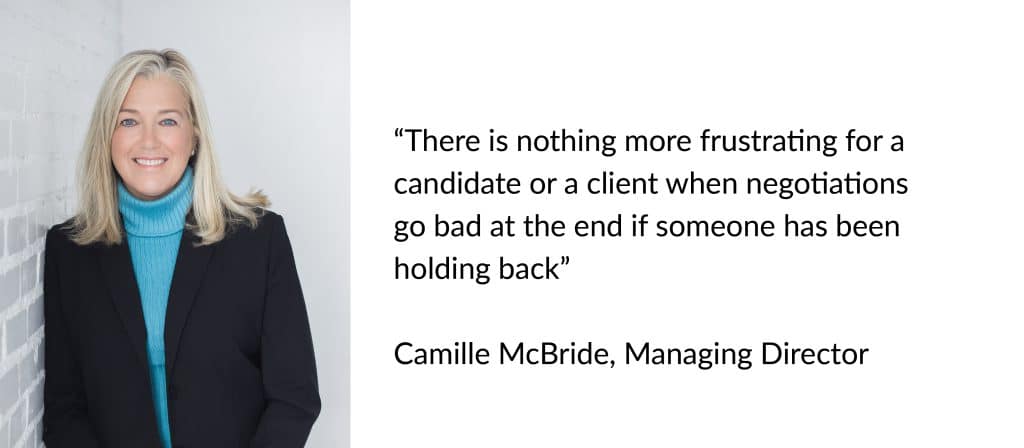Whether you are establishing your salary during an interview or asking for a raise at a performance review, how you present your side is important. There are key factors to keep in mind, like timing, market value, and additional benefits offered by the company. If you do the research and practice your delivery, an ideal salary is likely within reach. We are rooting for you! We asked the Dagen team to share some negotiation mistakes to avoid:
Not bringing it up at all
Perhaps the most common mistake you can make is avoiding the topic completely. We get it. Salary discussions are tricky to navigate. Don’t let this hold you back, though. Build your confidence by basing your ask on industry research. Practice the discussion by role-playing in the mirror or with a friend. It’s worth the time, trust us.
The timing is off
Be aware of timing in your particular situation. When interviewing, be sure to bring up your counteroffer before you accept the position. If you want a salary change at your current job, plan to discuss it at a performance review or request a 1:1 meeting with your manager. You don’t want to tack this conversation onto the tail end of an off-topic meeting. During a performance review, you’ll likely be able to leverage your accomplishments.
Not knowing your worth
If you don’t know your worth, you can’t ask for it. And notice we said know your worth, not guess your worth. How? Look at industry standards for your role and location, then combine that information with your personal experience. This is also a time to listen to your gut. If a number feels low, ask for more.
Starting with “I want”
Salaries are personal, but avoid starting with an “I want” statement. Focus instead on the skills and contributions you bring to the table, and what the company’s needs are. This will help establish buy-in from your manager and will support your cause.
Not being up front
If you wait to be clear about your needs until the very end of the interview process, you run the risk of wasting time, including yours. When compensation is brought up, be transparent about what your requirements are. This shows integrity and that you value honesty. Your directness makes the process go a lot smoother.

Giving up
While it’s likely your salary discussion will be a success, there’s a chance your offer will be rejected. If this happens, don’t lose hope. Ask if there’s an opportunity for compensation in other ways, such as added benefits. Be sure to ask about salary raise timelines, as the hiring manager may already have a plan in mind for compensating you more over time.
We’re here for you
We applaud you for the time you’ve spent researching how to have salary negotiations. Now it’s time to put your intentions into action. Reach out to us if you’d like support. We are happy to help.
